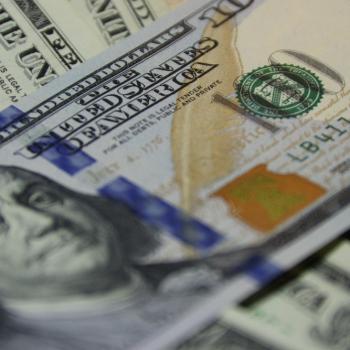An emergency fund needs to be a part of every person’s financial picture. There’s just something about having money set aside for emergencies that can really alleviate worry and help you to meet other financial goals that you’re working towards.
If you don’t know where to start with an emergency fund, I’d recommend starting with a $1,000 goal. This is pretty common among financial experts as $1,000 can cover quite a bit of unexpected expenses.
If you’re a fan of Dave Ramsey, he suggests that you put $1,000 aside in an emergency fund then pay down debt as fast as you can. Once you’re free of debt, you should concentrate on building up 3-6 months of expenses within your emergency fund. If you have monthly expenses of $2,000, this means you should have a goal of $6,000 to $12,000 in a dedicated emergency fund.
Where to Keep Your Emergency Fund
You should consider three things when deciding where to keep your emergency fund.
Accessibility. Interest. Safety.
Accessibility – If you keep your emergency fund in a savings account with easy transferability to your checking account, you might be tempted to occasionally dip into the account. Sure, you can build it right back up, right? But that’s a vicious circle that can really keep your emergency fund from growing.
Consider keeping your emergency fund in a separate bank or online account that can still be accessed without too much trouble. You just don’t want to fall into the trap of using your emergency fund for non-emergencies.
Interest – Instead of earning 0% in a checking account, your emergency funds can work harder for you in a savings account, especially with online banks. Two great online accounts that come to mind are ING and Ally Bank. The ING Orange savings has paid over 1% for quite a while and so has the Ally Bank online savings options. This may not seem like much for your $1,000 emergency fund, but as your account grows to cover 3-6 months worth of expenses, you’ll be happy to see a few extra dollars in interest each month.
Safety – I hope we don’t see any bank failures in the near future, but having insurance on your money is another way to have peace of mind as you focus on paying down debt. Save with a bank that provides FDIC coverage or a credit union with NCUA. That way you’ll know your funds are safe in case your bank happens to fail (which is unlikely, but still possible).
What Counts as an Emergency?
Good question! While there’s no hard and fast rule on what should be considered an emergency, you can use these suggestions as a guide to help determine if a situation is an ‘emergency.’
Can you tighten the budget for one month?
I know your budget is tight already, but before you dip into your emergency fund, look to see if you’ve used up all your budget money. If you can use your eating out, entertainment (movies and coffee) and other fun money to cover the unexpected expense, you’ll better off than dipping into the ol’ E fund. Trust me, it’s more difficult to payback the emergency fund than it is to go without a movie or eating out for a month.
Can it wait? No really. Can it wait?
Again, there’s no real concrete rule for this, but if the expense can wait, try to hold off. During the war times of the 30’s and 40’s, you’d see people living this phrase:
Use it up, wear it out, make it due, or go without.
Write that down and put it in your wallet. The next time you’re about to replace or buy something as an ‘emergency’ think about this quote and be honest with yourself.
If you do have to use your emergency fund, make sure you have a plan to pay it back as fast as you can! I hope you’re able to create an emergency fund and stick with it. I’m sure you’ll find that it makes those unexpected expenses a little easier to manage – especially when you’re trying to pay down debt!
Have you created an emergency fund? Have you ever needed to dip into it? How did you pay it back?











